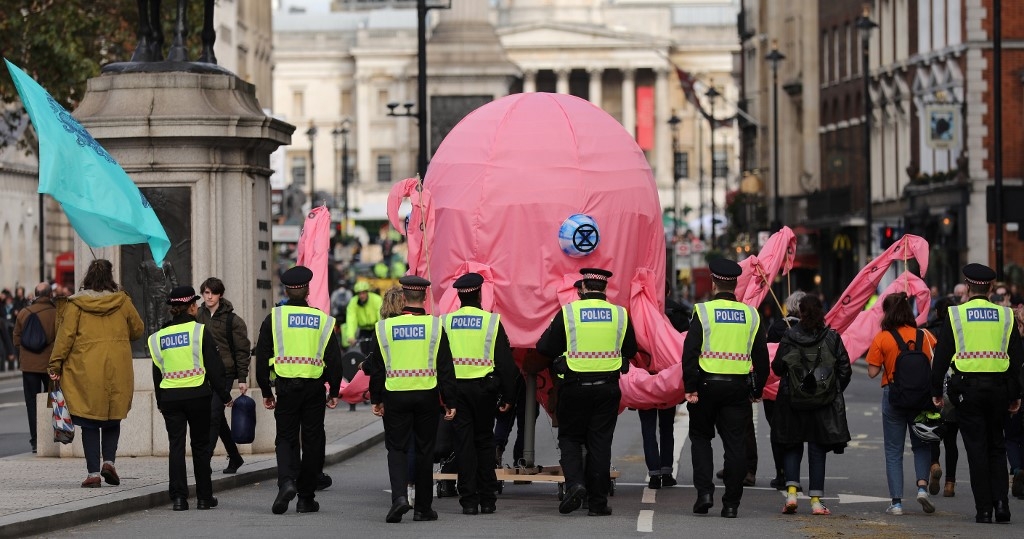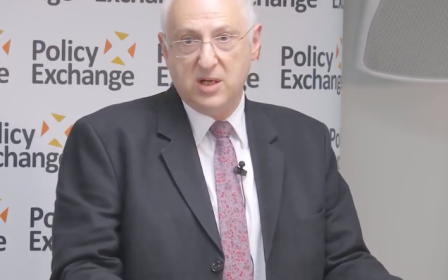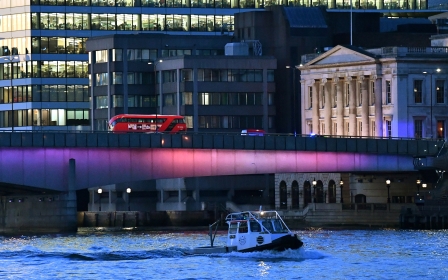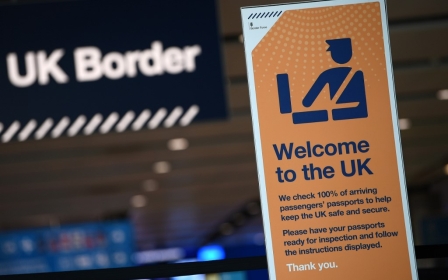'End Prevent': UK government faces new calls to drop counter-terrorism strategy

The British government is facing fresh calls to abolish its Prevent strategy amid uncertainty over the future of its own suspended review of the contentious counter-terrorism programme.
More than 100 academics, activists and public figures opposed to the strategy on Friday published a statement calling for the government to end Prevent and set out an “alternative approach” to rebuild relations with communities marginalised by counter-terrorism policies.
Signatories of the statement include Magid Magid, a member of the European Parliament; Zamzam Ibrahim, the president of the National Union of Students; Remy Mohamed, the president of the Association of Muslim Lawyers; and acclaimed poet Suhaiymah Manzoor-Khan, as well as many academics researching counter-terrorism policies.
“Decades of security-heavy policies have not reduced political violence nor addressed the root causes of it. We believe an alternative approach must break from the endless cycle of review, reform and rhetoric,” the statement said.
“We need to reframe the conversation, broaden our collective horizons, and talk about how we can work towards building a healthy, safe society free from violence.”
Middle East Eye is publishing a copy of the statement in full.
The publication of the statement follows the release of a new report titled “Beyond Prevent”, by campaign group Cage, which called on the government to abandon its current approach to counter-terrorism based on the “militarisation of the state” in order to restore trust in affected communities.
Ethical foreign policy
The report also called for the UK to adopt an ethical foreign policy, citing criticism and human rights concerns surrounding British support for the governments of Saudi Arabia, Egypt and Israel.
“A deep transformation of Britain’s foreign policy is therefore needed - withdrawing from international warfare, divesting from the arms trade and severing support for autocrats and occupiers - to ensure that the British state’s foreign policy doesn’t hinder the legitimate aspirations of people for self-determination,” the report says.
The release of the statement also comes as it has been confirmed that a Prevent document has listed environmental activist movements Greenpeace and Extinction Rebellion as examples of extremist organisations alongside banned far-right and Islamist groups.
Also listed are PETA, the animal-rights group, ocean pollution campaigners Sea Shepherd, and Stop the Badger Cull, the Guardian reported.
The same guide was also criticised for suggesting that expressing the view that Muslims are oppressed could be considered a sign of extremist beliefs and that engaging in dawah (proselytising) or home-schooling children could be causes for concern.
What is the Prevent Strategy?
+ Show - HidePrevent is a programme within the British government's counter-terrorism strategy that aims to “safeguard and support those vulnerable to radicalisation, to stop them from becoming terrorists or supporting terrorism”.
It was publicly launched in the aftermath of the 2005 London bombings and was initially targeted squarely at Muslim communities, prompting continuing complaints of discrimination and concerns that the programme was being used to collect intelligence.
In 2011, Prevent's remit was expanded to cover all forms of extremism, defined by the government as “vocal or active opposition to fundamental British values, including democracy, the rule of law, individual liberty and mutual respect and tolerance of different faiths and beliefs.”
In 2015, the government introduced the Prevent Duty which requires public sector workers including doctors, teachers and even nursery staff to have “due regard to the need to prevent people being drawn into terrorism”.
A key element of Prevent is Channel, a programme that offers mentoring and support to people assessed to be at risk of becoming terrorists. Prevent referrals of some young children have proved contentious. 114 children under the age of 15 received Channel support in 2017/18.
Criticism of the Prevent Duty includes that it has had a “chilling effect” on free speech in classrooms and universities, and that it has turned public sector workers into informers who are expected to monitor pupils and patients for “signs of radicalisation”. Some critics have said that it may even be counter-productive.
Advocates argue that it is a form of safeguarding that has been effective in identifying and helping troubled individuals. They point to a growing number of far-right referrals as evidence that it is not discriminatory against Muslims.
In January 2019 the government bowed to pressure and announced that it would commission an independent review of Prevent. This was supposed to be completed by August 2020. After being forced to drop its first appointed reviewer, Lord Carlile, over his past advocacy for Prevent, it conceded that the review would be delayed.
In January 2021 it named William Shawcross as reviewer. Shawcross's appointment was also contentious and prompted many organisations to boycott the review. Further delays followed. Shawcross's review, calling for a renewed focus within Prevent on "the Islamist threat", was finally published in February 2023 - and immediately denounced by critics.
“It is clear that Prevent and counter-extremism in general is used to police the fallout from failing government policies. What is needed is a total overhaul of how the government and public sector relate to different communities,” said Asim Qureshi, Cage’s research director.
The government last year agreed to commission an independent review of Prevent in response to widespread concerns about the strategy raised by rights groups and Muslim advocacy groups and in parliament.
The review must be completed by law by August this year.
However, it is currently on hold after the Home Office dropped Lord Carlile as reviewer last month following a legal challenge of his appointment over his past involvement in and advocacy for Prevent.
The Home Office website for the independent review says: “The future of the review will be considered in due course.”
Middle East Eye propose une couverture et une analyse indépendantes et incomparables du Moyen-Orient, de l’Afrique du Nord et d’autres régions du monde. Pour en savoir plus sur la reprise de ce contenu et les frais qui s’appliquent, veuillez remplir ce formulaire [en anglais]. Pour en savoir plus sur MEE, cliquez ici [en anglais].




